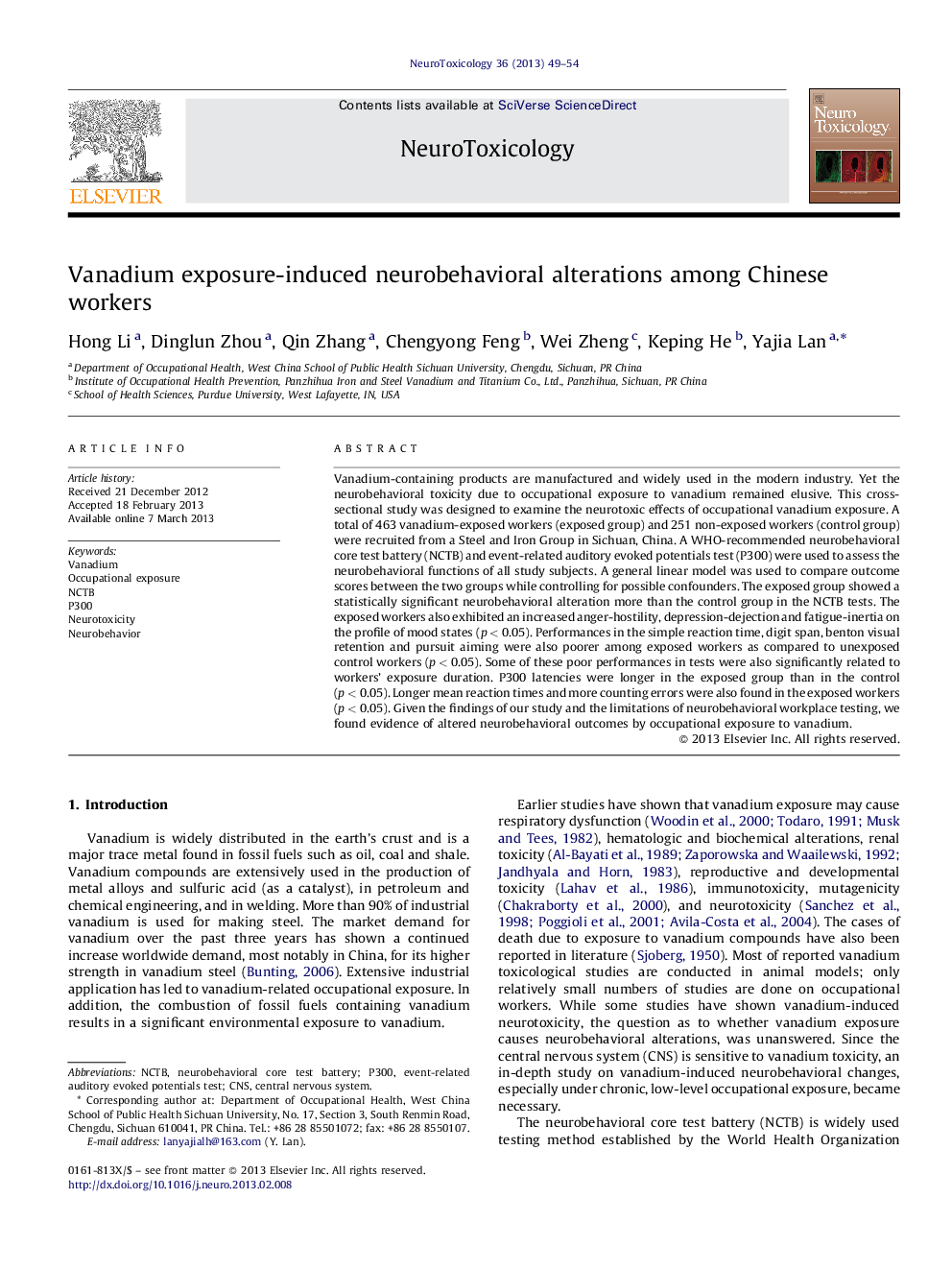| کد مقاله | کد نشریه | سال انتشار | مقاله انگلیسی | نسخه تمام متن |
|---|---|---|---|---|
| 5855101 | 1562058 | 2013 | 6 صفحه PDF | دانلود رایگان |
Vanadium-containing products are manufactured and widely used in the modern industry. Yet the neurobehavioral toxicity due to occupational exposure to vanadium remained elusive. This cross-sectional study was designed to examine the neurotoxic effects of occupational vanadium exposure. A total of 463 vanadium-exposed workers (exposed group) and 251 non-exposed workers (control group) were recruited from a Steel and Iron Group in Sichuan, China. A WHO-recommended neurobehavioral core test battery (NCTB) and event-related auditory evoked potentials test (P300) were used to assess the neurobehavioral functions of all study subjects. A general linear model was used to compare outcome scores between the two groups while controlling for possible confounders. The exposed group showed a statistically significant neurobehavioral alteration more than the control group in the NCTB tests. The exposed workers also exhibited an increased anger-hostility, depression-dejection and fatigue-inertia on the profile of mood states (p < 0.05). Performances in the simple reaction time, digit span, benton visual retention and pursuit aiming were also poorer among exposed workers as compared to unexposed control workers (p < 0.05). Some of these poor performances in tests were also significantly related to workers' exposure duration. P300 latencies were longer in the exposed group than in the control (p < 0.05). Longer mean reaction times and more counting errors were also found in the exposed workers (p < 0.05). Given the findings of our study and the limitations of neurobehavioral workplace testing, we found evidence of altered neurobehavioral outcomes by occupational exposure to vanadium.
⺠Neurobehavioral toxicity of occupational vanadium exposure was evaluated in steel-iron manufacturing workers. ⺠Scores (anger-hostility, depression-dejection, and fatigue-inertia) were significantly higher in exposed than control workers. ⺠Vanadium exposure was associated with decreased coordination, auditory memory, and perception/motion speed. ⺠Tests by NCTB and P300 found significant neurobehavioral alterations in vanadium-exposed workers.
Journal: NeuroToxicology - Volume 36, May 2013, Pages 49-54
